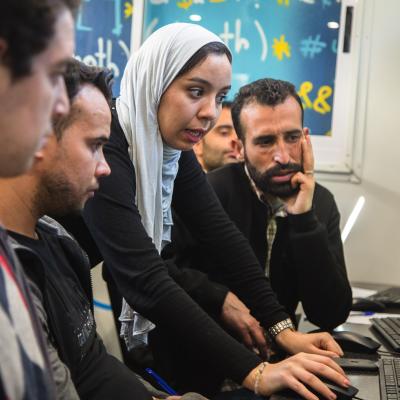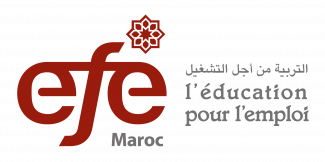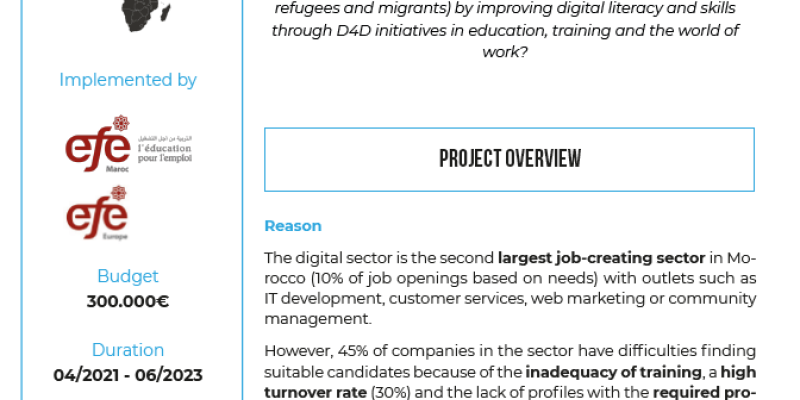The digital sector in Morocco is the second largest job creator, with IT development, customer services, web marketing, and community management being key areas. However, 45% of companies struggle to find suitable candidates due to inadequate training, high turnover (30%), and a lack of required professional skills. Despite formal degrees not meeting the ICT/Tech companies' needs, employers still prioritize higher education backgrounds over specific skills, leading to youth unemployment and brain drain. The low representation of women in digital professions is also a challenge. Offshoring IT services to Morocco is creating opportunities, but better and more inclusive needs-based training in ICT is necessary for inclusive economic growth and to enhance the competitiveness of the digital economy.
The objective of Take IT Forward project is to provide (18-35-year-old) unemployed youth, including women, in Morocco with high-demand digital skills to find a job in the ICT sector.
The first phase of the project was dedicated to the collection and analysis of real-time labour market data through machine learning in order to create typical job profiles and develop relevant, specific training. In the second phase, the project opened calls for applications and created groups of learners (both IT and non-IT profiles).
- 330 young people (aged 18-35), of which 167 women, participated in a skills assessment leading to an individual learning path
- 185 young people, of which 103 women, followed a training course to develop soft skills
- 31 young people were trained in computer programming skills (of which 18 women)
- 105 graduates, including 60 women, have found jobs in the ICT sector. 65 of those have secured a long-term position (more than 3 months in the same company)






